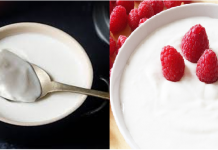 How much of the sunshine vitamin is your child getting? Vitamin D is also known as the sunshine vitamin because sunlight is the major source of this nutrient. Along with calcium, vitamin D is crucial for bone health, growth and also performs many other key roles in our health.
How much of the sunshine vitamin is your child getting? Vitamin D is also known as the sunshine vitamin because sunlight is the major source of this nutrient. Along with calcium, vitamin D is crucial for bone health, growth and also performs many other key roles in our health.
There are two types of this vitamin, namely, vitamin D2 which is mostly man made and added to fortified foods, and vitamin D3 which is made in our body when the skin is exposed to sunlight. Vitamin D3 is also found in some animal foods such as fatty fish, fish liver oil and egg yolk.
Deficiency of vitamin D in children can lead to poor bone health. This is due to the fact that vitamin D makes it possible for the calcium that is in the foods we eat to get absorbed from the intestine effectively.
Without Vitamin D, calcium in foods goes waste, and consequently, the bones do not get the required amount of calcium to make them strong. Similarly, vitamin D also regulates absorption of phosphorus, another key bone health mineral.
In fact, the impact of poor vitamin D status on the fetus is felt in the mother’s womb itself. When the mother is deficient in this nutrient, skeletal growth of the fetus is affected since the blood is shared between the infant and the mother. A deficiency disease known as “rickets” could develop in infants born to mothers with low vitamin D levels.
Rickets results in bowed legs in toddlers, weak and fragile bones, dental problems, muscle weakness, stunted growth and so on. Even mild deficiency puts the children at huge risk of developing osteoporosis (a fragile condition of bones) later in life.
Other than bone health, recent research has found that vitamin D plays crucial roles in preventing and treating many chronic diseases.
Type 1 diabetes
Studies have shown that vitamin D supplementation during infancy may protect against development of type 1 diabetes later in life.
Aneamia
Vitamin D enhances production of red blood cells and can effectively prevent iron deficiency aneamia.
Infections
Children who have a low level of vitamin D, are at increased risk of contracting infections, such as tuberculosis, pneumonia, bronchitis and other respiratory diseases since vitamin D is associated with immunity.
Mental, psychomotor functions in children are believed to be affected by the status of vitamin D too. Language development, coordination, memory, learning, etc. are believed to be impacted by vitamin D levels.
Although the Indian Council of Medical research does not recommend vitamin D supplementation and there are no guidelines for vitamin D intake levels for adults or children yet, The American Academy of Pediatrics recommends that all babies that are breastfed receive routine vitamin D supplementation (400 IU per day).
This supplementation is to be continued till the babies are started on solid foods. The primary source of vitamin D for babies is the stores that were laid down in the mother’s womb, and if the mother herself was deficient, the babies would need supplementation after birth, since breast milk alone does not provide enough of this nutrient.
Exposure to sunlight is the best way of ensuring the babies or older children get enough vitamin D. However, dark skinned children or those who live in cold climates with not enough sunshine are at increased risk of deficiency, and again would need supplementation of vitamin D.
 There is growing evidence that children in urban areas which have abundant sunshine also are clinically deficient in vitamin D in India. This is probably due to reduced physical activity performed outdoors in the afternoon since this time is mostly spent in the classrooms or at home.
There is growing evidence that children in urban areas which have abundant sunshine also are clinically deficient in vitamin D in India. This is probably due to reduced physical activity performed outdoors in the afternoon since this time is mostly spent in the classrooms or at home.
To get enough of this nutrient, maximum parts of the body need to be exposed to the afternoon sun for at least 15 to 20 minutes every day. Fortification of foods with vitamin D is not being done in India. However, eating fatty fish, or cod liver oil is one way of getting vitamin D for older children and adults.
Visit Gympik.com and find the best nutrition and diet centres in your area and speak to an expert nutritionist there. You may even hire a personal dietitian for you and your family. Some of the best centres that offer the services of nutritionists and dietitians in Mumbai are Health Wealth and Happiness Club in Bhandup East, Cafe Nutrition in Santacruz West, and Anjali Mukerjee Health Total in Bandra and Borivali.


 Traqade
Traqade































Vitamins are needed by both children and adults. It is important to choose the right one in order to improve health and not harm. Here I found an amazing multivitamin women for me, it was the best choice that improved the quality of my life
I read your article It made me more open to the world.
Vitamin D is essential for your child’s bone development, immune function, and even oral health. A deficiency can lead to weakened teeth and increased risk of cavities. Ensuring your child gets enough sunlight, fortified foods, or supplements can make a big difference. If damage has already occurred, options like Dental Bonding in Magnolia TX can help restore their smile safely and effectively. Early care leads to lasting confidence and health.
What you eat affects not just your body but your brain. Research shows a strong link between diet and mental health conditions like depression and anxiety. By aligning your nutrition plan with your therapy and overall health goals, Total Medic amplifies the effects of treatment and supports sustained wellness. Total Medic
This is one of the best articles I have ever read. I want you to know
Wellness, on the other hand, is an active process of making choices toward a healthy and fulfilling life. Together, they form the cornerstone of a vibrant existence. In today’s fast-paced world, prioritizing health and wellness is more important than ever. From nutrition and exercise to mental clarity and emotional resilience, every aspect of our lifestyle contributes to our overall well-being. Wellness Online
Vitamin D is so important for kids’ growth and overall health, especially for strong bones and a healthy immune system. Making sure they get enough through diet and sunlight is key. For parents and businesses focused on nutrition, working with a trusted Food ingredients supplier in Sharjah can help provide quality products that support children’s health needs.
Is your kid getting enough Vitamin D? While you focus on their health, don’t overlook the tools that help you capture those special moments—like your phone. If your device isn’t taking clear photos, it might be time for a Google pixel 9 pro back camera replacement Google Pixel 9 Pro back camera replacement. A damaged or malfunctioning camera can ruin precious memories. Replacing it ensures you continue capturing high-quality images of your child’s milestones. Don’t wait until the issue gets worse—get your Pixel 9 Pro back camera checked today.